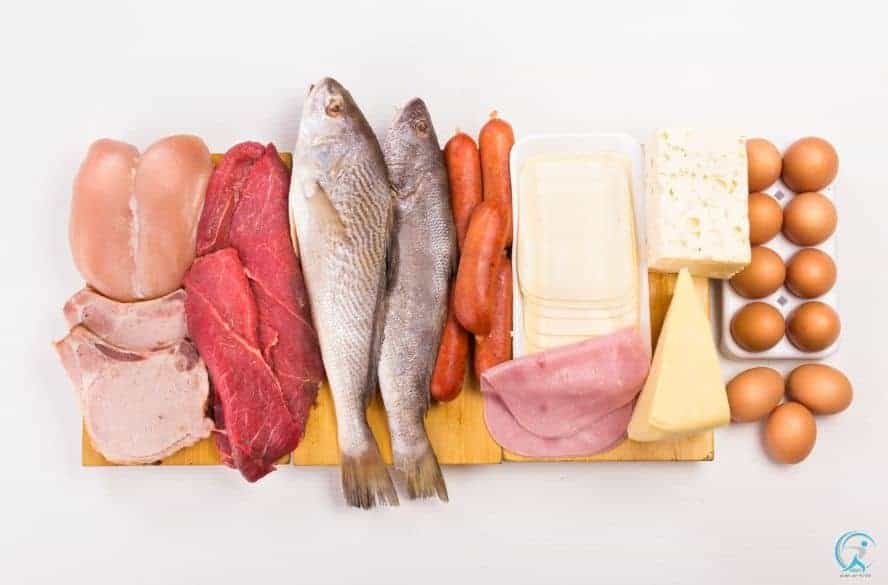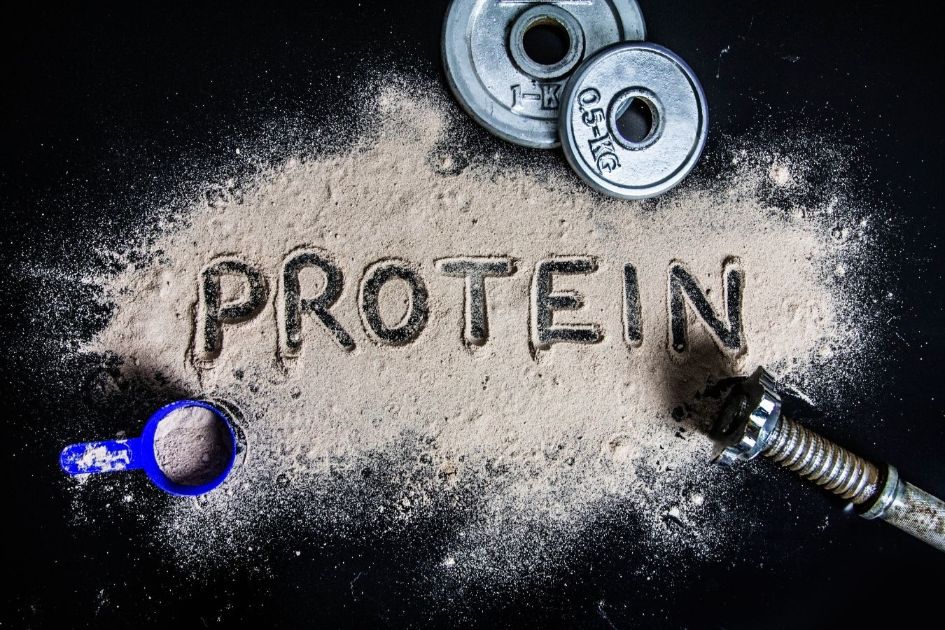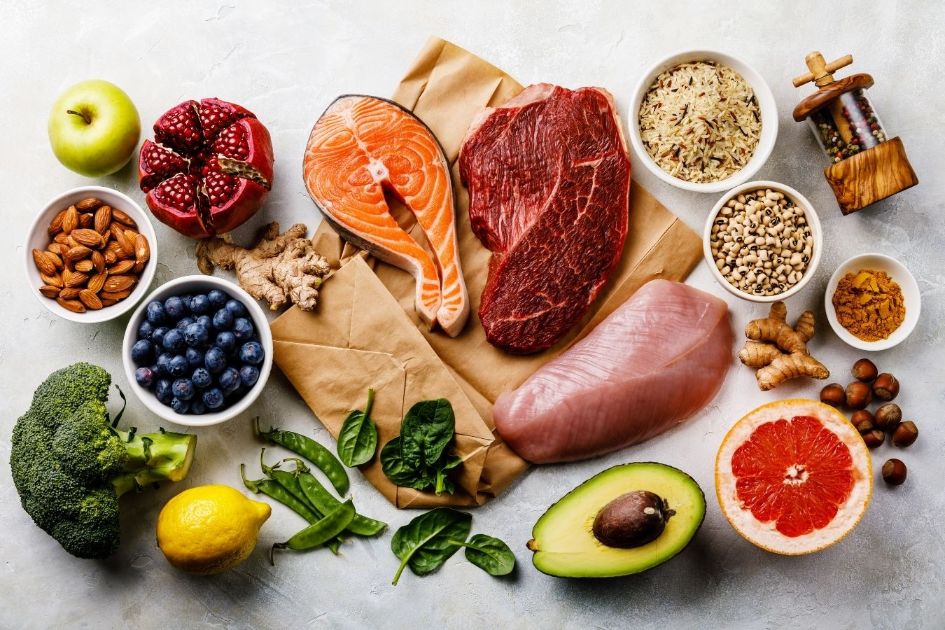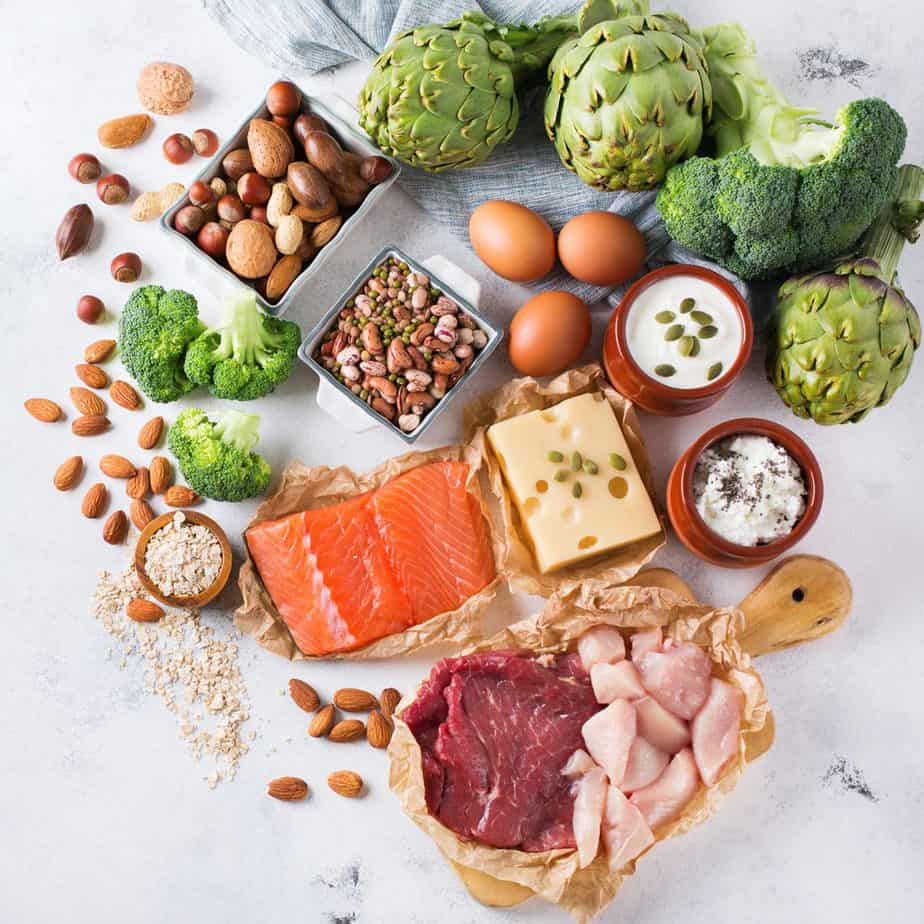Proteins are essential for our body; they help us build muscles and bones, keep our skin healthy, and even regulate hormones. But How Important Is Protein in A Healthy Diet?
If you are looking at what is essential in a healthy diet, then protein should be one of them. It helps build muscle and keeps us strong. But how much is our daily protein needs? And what kind of protein is best? This article will answer those questions and other things about protein that you may not know.
How Important Is Protein in A Healthy Diet?

Protein is an essential nutrient that plays various roles in the body, including building and repairing tissue, helping with weight loss, and assisting with enzyme reactions in the body’s cells. The importance of protein in a healthy diet cannot be understated, but how much protein do you need daily? How do you make sure your diet contains enough protein without going overboard on fat or carbs? This article will answer these questions and more, so keep reading to learn more about the importance of protein in your diet!
Why protein supplements are crucial

While it’s true that many of us don’t get as much protein as we should (the average woman consumes about 60 grams, while most experts recommend between 80 and 100 grams a day), for those who are looking to build muscle, protein supplements can be beneficial. Not only do they boost your daily intake of protein, but they also serve as a convenient way to take on additional calories.
They’re beneficial if you’re looking to gain weight or add bulk. If you struggle with gaining weight, using an all-in-one supplement is an easy way to significantly increase your caloric intake without having to eat tons of low-quality junk food every day.
In addition to their weight-gain benefits, protein supplements can be incredibly useful for maintaining your muscle mass when you’re trying to lose weight. If you’re trying to shed pounds, your caloric deficit is likely leaving you with a bit of excess body fat. While that’s something many people are happy about, it does mean that it becomes more difficult to maintain lean muscle tissue.
The easiest way to make sure you’re maintaining your muscle mass is by using protein supplements. They can be used to boost the amount of calories you’re taking in, thereby increasing the total number of calories your body burns every day. That extra caloric burn will mean that more of the excess fat you have will come from stored body fat rather than muscle tissue.
The importance of a healthy diet high in protein
I’m sure you’ve all heard it before. Healthy diet, healthy body. No one can argue with that; however, many people do not know what exactly they should be eating to make their bodies healthy. There are three major components of healthy eating: protein, carbohydrates, and fats.
All three of these work together to give your body energy for daily activities and fuel for growth or recovery from injury or illness. On average, most Americans consume far more than enough calories—even healthy calories—to maintain their body weight. A good rule of thumb is to take your ideal weight and multiply by 15-20%, depending on activity level.
What does that mean? Say your goal weight is 140 lbs., which would put you at a healthy BMI (Body Mass Index) of 21. 6, based on a 5’4 height. The average woman should consume approximately 1,800 calories per day to maintain her body weight, while an active woman could aim for 2,000 calories without gaining extra body fat.
In that case, multiply 140 lbs. by 20%, which equals 28 lbs. per month or 1 lb. per week. Multiply your ideal weight by 15-20% to get a calorie count that can help you reach your goals! This is an easy way to keep track of your macronutrient needs without figuring out the math yourself!
Consider your overall dietary needs and protein requirements

Did you know that your body needs both carbs and protein to function at its best, with protein being of particular importance to athletes, people recovering from illness or injury, and those trying to lose weight? However, the more active you are and your age (the body becomes less efficient at absorbing nutrients as we age), especially if you’re trying to lose weight, the higher your daily protein intake should be.
Opt for a high-protein diet: There are many sources of protein you can incorporate into your diet, including meat, fish, eggs, nuts, and beans. To meet your daily protein requirement, you’ll likely need to plan meals that include a mix of these different foods. Opting for a high-protein diet is an easy way to ensure you’re getting enough protein each day.
5 servings of plant-based protein per day: Plant-based proteins include grains, vegetables, and dairy. Legumes such as lentils, chickpeas, and soybeans also provide a range of essential nutrients, including vitamin B, iron, and zinc. Beans are especially rich in dietary fiber (and low in fat), making them an excellent addition to any meal or snack—the US Department of Agriculture recommends consuming at least five servings of legumes per week for optimal health benefits.
When choosing a protein powder, make sure you choose gluten-free, contains no added sugar, and has no artificial ingredients. The great thing about these powders is that they are effortless to incorporate into any diet. Add it to your shakes or smoothies, use it in your cooking, sprinkle it on yogurt, or even bake with it! I like to add mine to cottage cheese for an afternoon snack. It’s just enough protein for me without being too heavy, and I love the flavor!
What foods have the most protein?
One of the most common questions I get when people are trying to change their diet is: What should I eat with protein?. Great question! You need a certain amount of protein each day, and it can be hard to figure out how much, let alone which foods have it. So today, we will cover precisely what foods have protein and how much!
Many foods have protein, but these are some of my favorites! Cottage cheese, eggs, chicken breast, beef tenderloin, and shrimp. These foods have between 15-20 grams of protein each which is great! Make sure you eat various proteins from different sources every day to get all your essential amino acids.
Also, don’t forget about protein powders! These can be very convenient for a quick snack and are great for your on-the-go lifestyle. Whey protein is digested quickly and has amino acids that help you build muscle, so it’s a great one to include. Plant-based proteins like pea or hemp are also great because they contain all 20 amino acids plus plant sterols that help improve cholesterol levels and naturally reduce inflammation.
Are some proteins better than others?
While protein quality is essential, it’s far less important than making sure you’re eating enough of all major food groups. To create a healthy diet, fill half your plate with vegetables and fruits at every meal, plus make sure to include foods from all five of these major food groups: lean meats, whole grains, low-fat dairy products, legumes, and nuts/seeds. It might also be worth considering a high-quality plant-based protein supplement as an added insurance policy.
While all of these sources are considered high-quality protein sources, there is some variation. For example, animal-based proteins contain additional nutrients not found in plant-based protein supplements, including vitamin B12 and creatine. Plant-based proteins also tend to have more fiber and less saturated fat than animal-based proteins.
The type of protein source you consume will depend on your nutritional goals. If you’re trying to build muscle, it’s best to focus on animal-based proteins like eggs, chicken, and fish. Vegetarians and vegans may want to supplement a plant-based protein supplement if they’re aiming for the same goal.
Learn about plant-based protein foods

If you’re switching from a carnivorous diet to a plant-based one, you might be wondering how you’ll get the protein your body needs. While it’s true that animal protein is more bioavailable than plant-based foods, there are plenty of other sources of protein out there that are just as good for you—and some even better.
So, while you may have heard that you can’t get enough protein without eating meat, it’s just not true. Here are some of the best sources of plant-based protein foods: Açaí berries – Rich in fiber and antioxidants, açaí berries are also a good source of omega fatty acids. Alfalfa Sprouts – These sprouts provide plenty of Vitamin K and great amounts of protein for their size. Almonds – Almonds are high protein nuts, plus plenty of monounsaturated fats that help reduce cholesterol levels.
Soybeans (Edamame): The king of plant-based proteins, soybeans pack 20 grams of protein per cup with very little fat or cholesterol; plus, they’re high in Omega 3s to boot! Quinoa – This grain contains all the essential amino acids your body needs for muscle growth.
Vegan yogurt: Chock full of probiotics and live cultures, vegan yogurt is also a great source of protein. Vegan cheese – Many brands now offer plant-based cheeses that are a good alternative to dairy products for lactose intolerant or just trying to cut back on animal fats. Sunflower seeds – Not only do sunflower seeds provide ample amounts of protein, but they’re also high in Vitamin E to boot! Try coating them with nutritional yeast for extra flavor; plus, Vitamin B12 will help you feel more energized throughout the day.
There are many ways to get protein on a vegan diet
Tofu, beans, lentils, nuts, and seeds are just a few examples. When you eat a plant-based diet, getting enough protein is a lot easier than you think. In fact, the Recommended Dietary Allowance (RDA) for protein—0.8 grams per kilogram of body weight—is the same for vegans as it is for omnivores. That’s because we need protein to fuel all of our essential biological functions; it supports our immune system and keeps our organs functioning properly.
When we talk about protein on a vegan diet, complete protein is often used. Complete proteins contain all nine essential amino acids your body needs but can’t produce themselves. Nine foods fit into the complete protein category: legumes, grains, soy products, quinoa and amaranth (seeds), hemp seeds, and chia seeds. These food sources are considered complete because they offer all nine essential amino acids. But you don’t need to eat only one source of complete protein at every meal; as long as you include several throughout the day, you’ll be getting enough of each amino acid to stay healthy. As far as the recommended 0.8 grams per kilogram of body weight goes, there are no concerns about vegans eating enough protein each day.
Can you overeat protein on a plant-based diet?
First, the bad news: Many plant-based foods are not naturally high in protein. To get adequate amounts of protein from a vegan diet, you must know how to combine various plant-based foods to make sure you’re getting enough. This is where The Vegan Plate comes into play. By filling your plate with as many plant sources of protein as possible (legumes, grains, seeds, nuts, and veggies), you can easily meet your daily recommended amount without worry.
Secondly, the good news: Plant protein has been shown to provide just as much—if not more—health benefits as animal protein. It’s not just an excellent option for those following a vegan diet; plant-based proteins are also suitable for lactose intolerance, vegans and vegetarians, athletes, and others who abstain from meat.
As long as you know how to source your food (vegan or otherwise), the best thing about plants is that they can be eaten any time of day, making them convenient for busy lifestyles. They can easily be incorporated into a healthy breakfast or lunch without taking away from all the other healthful foods you need throughout the day.